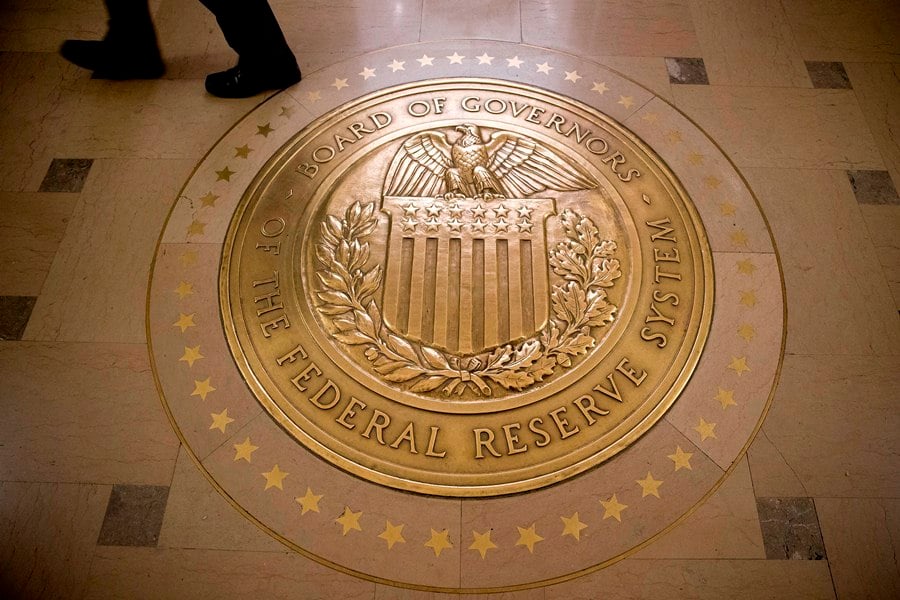With all eyes on the Federal Reserve's much-anticipated interest-rate announcement Thursday, financial advisers are reflecting on various scenarios that could, or should, lead to the first rate hike in nearly a decade.
Leading up to what has been described as the most anticipated rate hike in history, in the wake of an historic quantitative easing program to hold interest rates artificially low, some advisers now believe the markets have already looked beyond the Fed and its diminished impact on the economy.
“I think the Fed has boxed itself into a corner by being so accommodative and so benign for so long,” said Ian Weinberg, chief executive at Family Wealth & Pension Management.
“I think the Fed is impotent, and it feels like they aren't going to have a significant impact beyond some short-term knee-jerk market reactions,” he added. “The Fed has gone the wrong way for too long by going from looking out for the economy to looking out for the markets.”
The Fed's
two-pronged mandate is to use monetary policy to manage the nation's unemployment rate, and keep inflation at a 2% level.
FUZZY DATA
The problem is, both of those data points have become much fuzzier over the past six years. Unemployment, which is stated at 5.5%, is controversial because it does not include all the people who have given up looking for work as the economy has failed to take off. And the inflation number is estimated at between zero and 1.8%, depending on how it is calculated.
Thus, those outside the tight circle of Fed governors are left
speculating and assuming the Fed is overly focused on how a rate hike would impact the stock and bond markets.
“Up until this recent stock market volatility, there was very little question they would raise rates in September,” said Clark Randall, owner of Financial Enlightenment. “I think the Fed wants to raise rates, but I don't think they will, because they've backed themselves into a corner of having to support the stock market even though that's not their job.”
Even though a rate hike should symbolize that the Fed believes the economy is getting stronger,
financial markets would likely see at least an initial jolt of volatility on the news.
Another challenge for the Fed is the reality that it has waited so long to raise rates that much of the rest of the global economy is now either cutting rates or employing some version of quantitative easing to be more accommodative.
SAVING FACE
Leon LaBrecque, chief investment officer at wealth management firm LJPR, thinks the Fed needs to raise rates to save face, if nothing else.
He said he believes Fed Chair Janet Yellen is the bottleneck on a Fed board that would otherwise be ready to pull the trigger on a rate hike.
“Whatever Queen Janet wants to do will be the case, and she's very dovish,” he said. “I think they should raise rates, and I'd like them to, but I think the queen will continue her dovish stance.”
The last time the Fed raised interest rates was 2006, but rates have been held down to near zero since the 2008 financial crisis. When it became clear that the
zero-rate policy wasn't having the desired impact on the economy and the markets, the Fed undertook a multi-trillion-dollar bond-buying program, known as quantitative easing that effectively introduced a new artificial bottom for rates.
Even though quantitative easing was an experiment with mixed results, it proved that the modern-day Fed has many more tools than just adjustments to short-term interest rates.
With that new reality in mind, Bryan Beatty, a partner at Egan Berger & Weiner, believes the Fed's biggest risk is a loss of credibility.
“I think they're going to raise rates, and I think they have to,” he said. “This is the most telegraphed rate hike that I can think of, and I think they should do it now regardless of the ramifications on the markets.”
50% CHANCE
Paul Schatz, president of Heritage Capital, does not think the Fed should raise rates at this time, but he believes there's a 50% chance that they will.
“Although we almost have full employment, according to Fed data, and although GDP is fine, I think there are other issues to worry about,” he said. “Energy and commodity prices have collapsed, and if we raise rates now the dollar could get even stronger, which would further create a global currency imbalance.”
David Haraway, president of Substantial Financial, also thinks the strong dollar is a major factor that could delay a Fed move.
“Right now the decision seems to be the dollar as a safe-haven currency or higher rates, but if we have the safe haven currency and higher rates that could be a problem because our goods would be even less competitive in global markets,” he said. “My sense is that they won't raise rates this time, but they might give a little stronger language that a rate hike is coming.”







